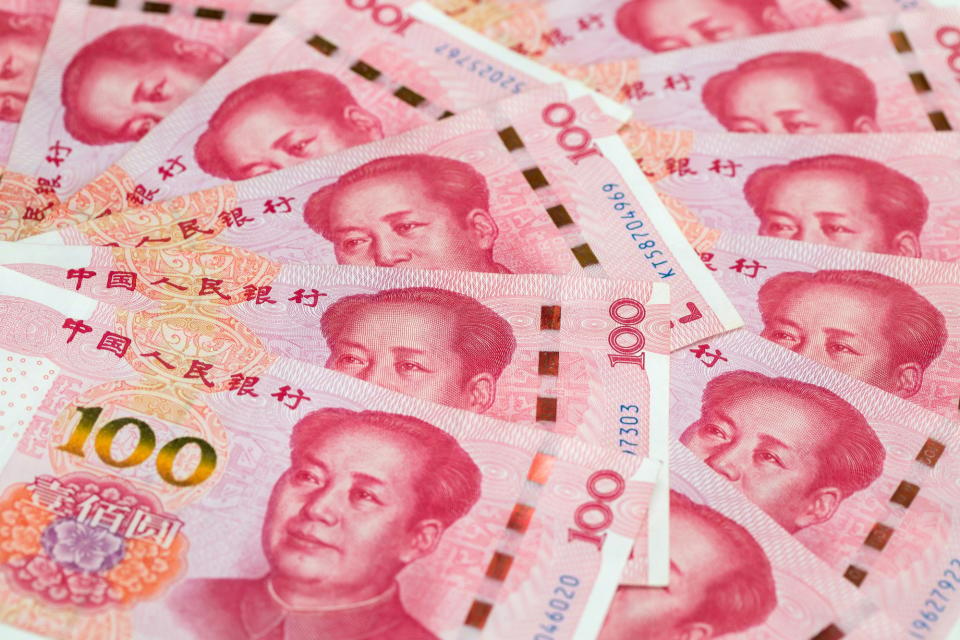China's offshore green bond market slumped 36% to record low in 2023 on rate hikes, lack of property issuers: Sustainable Fitch
China's offshore green bond market stumbled last year, hitting a record low amid rising US interest rates and an absence of Chinese property developers, according to a report from Sustainable Fitch.
But green bonds are becoming increasingly popular among mainland Chinese firms to meet rising demand for financing of transition projects.
Offshore green bond issuances in China fell 36 per cent last year to just over US$10 billion after declining 21 per cent in 2022, reaching half the level in 2021, according to the sustainable finance research unit of the credit ratings agency Fitch Ratings.
Do you have questions about the biggest topics and trends from around the world? Get the answers with SCMP Knowledge, our new platform of curated content with explainers, FAQs, analyses and infographics brought to you by our award-winning team.
Chinese property developers missing from the bond market contributed to the decline in offshore green bond issuance, according to the report. The developers accounted for only 4 per cent of offshore green bonds in 2023, compared with a 40 per cent share of overall offshore issuance in 2021.
"Banks, local government financing vehicles and energy corporates are now the dominant issuers that remain active in the offshore green bond market," Jingwei Jia, associate director of Sustainable Fitch, said in the report.
Overall bond issuances, both onshore and offshore, by Chinese property developers have slowed down to a trickle over the past few years after the central government came down heavily to curb leverage in the industry.
Developers face significant bond repayments this year, with the principal amount of onshore and offshore bonds due or puttable to hit 737.3 billion yuan (US$103.2 billion), an increase of more than 11 per cent from last year's maturities of 662.5 billion yuan, according to a report from Fitch Ratings in December. To compound matters further, contracted property sales are likely to drop by up to 5 per cent this year.
Meanwhile, Chinese onshore green bond issuance, excluding local government bonds, rose by 10 per cent year on year in 2023 to 808 billion yuan amid a downturn in the domestic debt market.
This contrasted with the nearly 65 per cent year-on-year increase in onshore green bonds in 2022, according to Sustainable Fitch.

The growth in China's green onshore bond issuance slowed to 10 per cent last year. Photo: Bloomberg alt=The growth in China's green onshore bond issuance slowed to 10 per cent last year. Photo: Bloomberg>
The progress in increasing the size of onshore transition financing slowed in 2023 because of the decline in the issuance of sustainability-linked bonds and transition bonds.
Sustainability-linked bonds include terms that link the coupon, or interest payment of a bond, to the issuer's achievement of climate or broader sustainability goals. Transition bonds' proceeds are dedicated to a company or a manufacturing facility's transition towards lower carbon emissions operations.
Only 39 billion yuan of sustainability-linked bonds and transition bonds were issued in 2023, a 35 per cent decrease from 2022, due to the slowdown in the onshore debt market, potentially raising investor scrutiny over transition financing tools.
"Investors may be concerned about the credibility of onshore sustainability-linked bonds and transition bonds, which could reduce their demand," Jia said.
"The majority of sustainability-linked bond and transition bond issuers are large state-owned enterprises with strong government support and lower borrowing costs. These issuers are generally less incentivised to select credible KPIs [key performance indicators] that are material to their businesses and set effective interest rate step-up mechanisms to drive the company's sustainability improvement."
China's central bank has yet to release the final draft of the nation's transition taxonomy, which may provide more guidance towards the technical standards for transition activities in sectors such as steel, coal power, building materials and agriculture, according to Sustainable Fitch.
Various Chinese local governments have started to test solutions to financing key transition activities and technologies despite the absence of a national transition taxonomy.
The Shanghai municipal government published a transition taxonomy in January 2024, which includes water transport, ferrous metal smelting and processing, petroleum refineries, chemical raw material manufacturing, car manufacturing and aviation, according to Sustainable Fitch.
Hebei province, Huzhou, Tianjin and Chongqing have also recently published guidelines to provide instructions on local transition financing activities, according to the report.
This article originally appeared in the South China Morning Post (SCMP), the most authoritative voice reporting on China and Asia for more than a century. For more SCMP stories, please explore the SCMP app or visit the SCMP's Facebook and Twitter pages. Copyright © 2024 South China Morning Post Publishers Ltd. All rights reserved.
Copyright (c) 2024. South China Morning Post Publishers Ltd. All rights reserved.

 Yahoo Finance
Yahoo Finance 